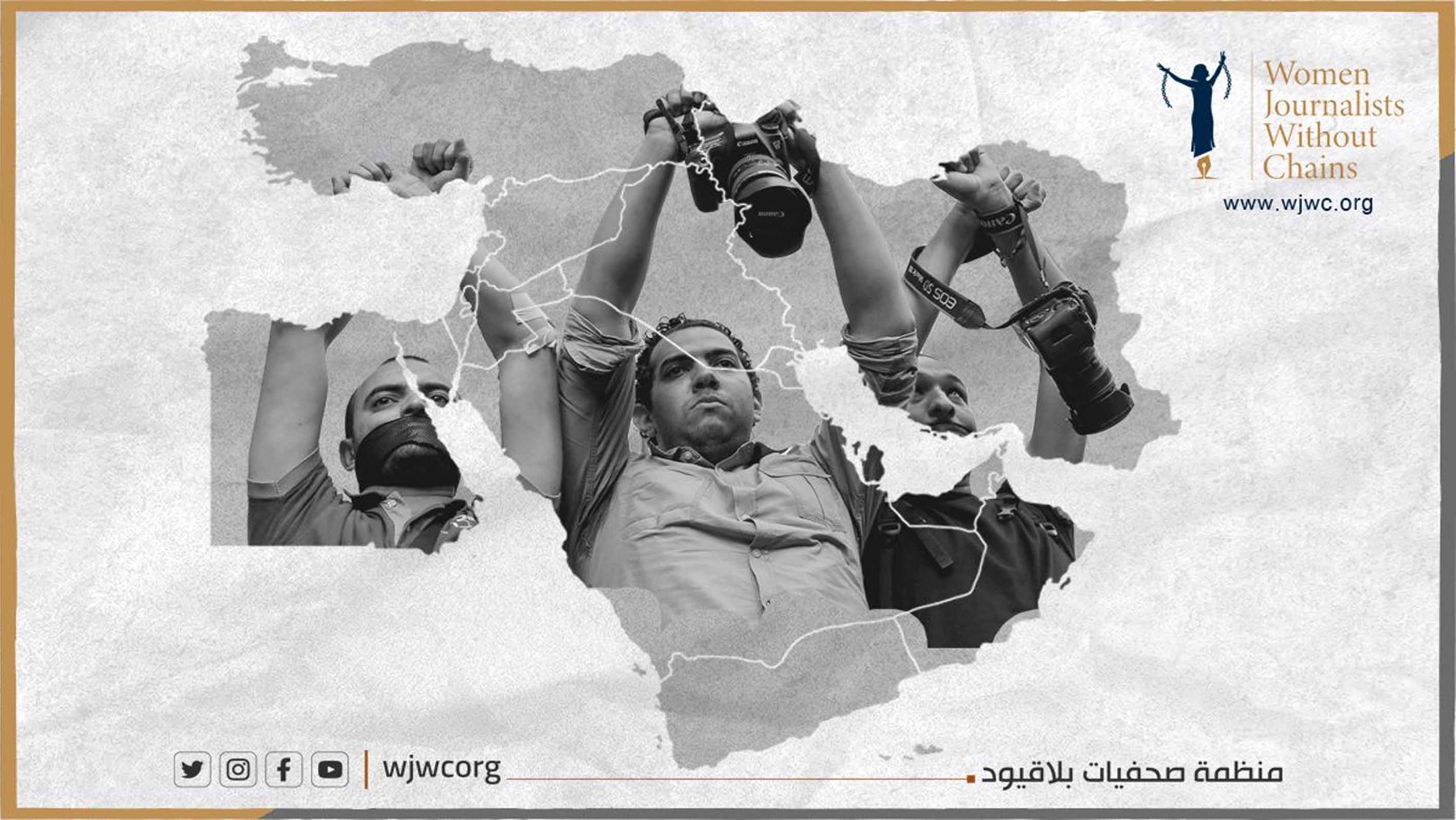Wjwc News

WJWC Releases 2022 Report on Press Freedom in MENA
To mark World Press Freedom Day on May 3, 2023, Women Journalists Without Chains (WJWC) has released its annual report on press freedom violations in the Middle East and North Africa (MENA).
The report focuses on the most prominent violations against journalists and activists in the region throughout 2022.
According to the report, Women Journalists Without Chains (WJWC) monitored press freedom violations committed by government security services and de facto authorities in 17 countries across the Middle East and North Africa in 2022. The violations affected a total of 1,140 journalists, including 219 women. Shockingly, the report documents 12 cases of journalists killed in the line of duty, with six of those cases occurring in Syria, three in occupied Palestine, and two in Yemen.
The report reveals that the largest press freedom violations in 2022 occurred in Syria, occupied Palestine, and Iran. These violations included killings and arrests, highlighting the grave risks faced by journalists in these areas.
Notably, the report highlights that regimes in countries such as Tunisia, Algeria, Iran, and Morocco have targeted journalists through tactics such as arrest, imprisonment, and military or political courts. These repressive measures not only violate the rights of journalists but also undermine press freedom and the public's right to access information.
Significantly, the report highlights that in Egypt, journalists who are present or those who have been in pretrial detention have been subjected to prolonged and frequent prison transfers throughout 2022. Similarly, in the United Arab Emirates, there are writers and journalists who completed their ten-year prison term several months ago, but the Abu Dhabi authorities continue to unjustly detain them without release.
Throughout 2022, a number of governments in the region - including Libya, Iran, Iraq, Syria, Tunisia, Algeria, Mauritania, Sudan, Lebanon, and Jordan - have introduced or modified laws under the guise of important labels such as fighting electronic crimes and "fake news" laws. These laws are often vaguely worded and provide a pretext for criminal defamation and the criminalization of journalism. They disregard the rule of law and abuse the judicial system, while also exploiting technology to spy on journalists and their families.
Against a backdrop of danger and uncertainty, the report paints a grim picture of the challenges faced by journalists in the Middle East and North Africa. From censorship to harassment, kidnapping, torture, and physical attacks, journalists in the region are subjected to a range of violations that threaten their safety and freedom. Tragically, the most extreme form of media censorship - killing - is also a very real danger for journalists in the region. In the digital realm, the culture of impunity has only further eroded the protections afforded to journalists.
In a sobering conclusion, the report acknowledges that the data collected on press freedom violations in 20 countries cannot provide a complete picture of the atrocities suffered by journalists in the Middle East and North Africa. Yet, even this partial view is a stark reminder of the grave violations being committed and the millions of people in the region who are being denied access to information and the facts. The report calls for urgent action to protect the rights of journalists and to promote press freedom, which are essential to the health of democratic societies and the protection of human rights.
To read and download the report, click here
